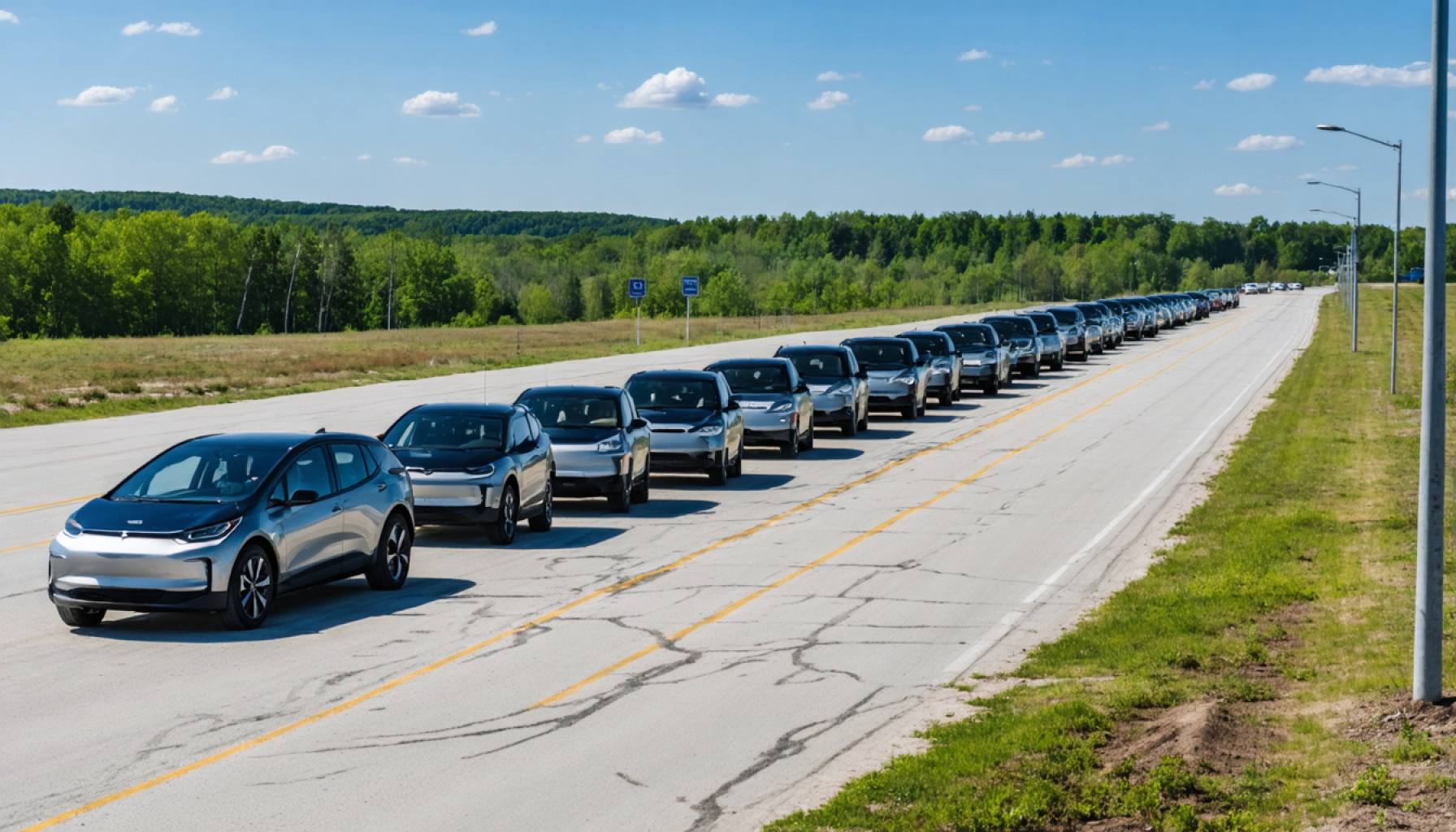- Green Charter Township is experiencing a clash of progress and preservation with Gotion’s proposed electric vehicle battery factory.
- The $2 billion investment promises over 2,000 jobs, aiming to revitalize Mecosta County’s economy.
- Community dissent arises over environmental concerns and Gotion’s Chinese connections, reflecting broader geopolitical tensions.
- Local elections have shifted power, removing officials who supported the project, highlighting contentious local governance.
- Legal battles question environmental impacts and corporate autonomy, with future court hearings pivotal to the project’s fate.
- This scenario typifies the larger global dialogue on renewable energy development and heritage preservation.
A sweeping landscape of verdant forests and fertile fields paints a serene backdrop in Mecosta County, Michigan, where whispers of industrial progress clash with echoes of the past. Set against this rural idyll, Green Charter Township’s ambitious venture with Gotion—a multinational electric vehicle battery manufacturer—hangs in suspended animation. The promise of a high-tech future stutters, entangled in a web of controversy and legal wrangling that has captivated a community.
A staggering investment exceeding $2 billion brought Gotion, a U.S.-based subsidiary, to Michigan’s doorstep, enticing the township in August 2023 with visions of economic revival. The blueprint promised not just a sprawling factory but hope—hope crafted into over 2,000 job opportunities that could transform the economic landscape of Big Rapids.
Yet, beneath this optimistic tableau lays a simmering dissent. Voices in the town, colored by memories of pristine landscapes, rise in protest. Some eyes turn warily towards Gotion’s lineage—its connections to its parent company in China and, implicitly, to the Chinese Communist Party—sparking fears welling from geopolitical tensions. Others cast their concerns on the earth itself, fearing that the whispers of industry might become the roars of environmental degradation.
In the heart of this storm, local governance bears the weight of transformation. Residents, stirred by fervor, leveraged democracy with precision, ousting pro-Gotion officials in a pointed act of electoral recalibration. What followed was a legal battle with stakes that transcend local borders. Gotion, steadfast in its commitments, argues its autonomy in the U.S. and denounces claims of potential environmental harm as baseless. The courtroom drama unfolds, with a narrative of independence and innovation on trial.
As the case moves silently but significantly towards its oral hearings in early May, a question lingers—a tapestry of uncertainty and opportunity: What does the future hold for this Michigan community? Will the ties that bind, or the strands of division, delineate its path forward?
Ultimately, this unfolding saga encapsulates a broader dialogue on progress and preservation. As the world tilts toward renewable energy and high-stakes geopolitics, the residents of Green Charter Township must grapple with their dual roles as stewards of heritage and architects of future growth. Here, the story is more than just about a factory; it’s about the choices that forge the future—both local and global.
Michigan’s Industrial Dilemma: Balancing Progress, Heritage, and Environmental Concerns
Understanding Gotion’s Michigan Project: A Prospective Shift
The project by Gotion, a subsidiary of a global powerhouse in electric vehicle (EV) battery production, aims to establish an influential foothold in Mecosta County, Michigan. At its core, the initiative promises over 2,000 jobs, potentially revitalizing the local economy significantly with a $2 billion investment. However, the plan is entangled in a mix of political, environmental, and societal apprehensions.
Additional Insights and Context
1. Geopolitical Concerns:
The connection between Gotion and its Chinese parent company raises eyebrows. The Chinese Communist Party’s influence and China’s current geopolitical strategies have fueled skepticism. U.S. policy experts often allude to the need for careful scrutiny and oversight over foreign investments in critical sectors to ensure national security remains uncompromised.
2. Environmental Considerations:
The proposed factory highlights debates about sustainable industrial practices. Concerns about water use, land degradation, and emissions need addressing through stringent environmental assessments. Michigan’s natural beauty and resources are cherished assets, and there is significant public interest in ensuring these are preserved.
3. Community Dynamics:
With residents decisively ousting pro-Gotion officials, this illustrates the power of local governance and community opinions. In the U.S., community buy-in is crucial for the success of large-scale industrial projects, underscoring the importance of transparent, ongoing dialogues between developers and stakeholders.
Pressing Questions and Considerations
How can communities balance economic growth with environmental conservation?
1. Public Consultation:
Regular meetings and open forums can help bridge the gap between developers and residents, fostering transparency and trust.
2. Regulatory Oversight:
Complying with environmental regulations and seeking third-party evaluations can assure the community of minimal ecological impact.
What does this mean for the U.S. electric vehicle industry?
1. Strategic Positioning:
Projects like Gotion’s symbolize significant steps towards fortifying the domestic supply chain for EVs, crucial for reducing dependency on foreign-made battery components—a strategic move in the global race for EV supremacy.
2. Economic Impact:
Beyond job creation, such investments can stimulate local businesses, increase tax revenues, and promote training programs, leading to broader economic benefits.
Actionable Recommendations
– Stay Informed: Residents should keep abreast of developments through official channels and participate actively in local deliberations.
– Leverage Technology: Utilize local tech hubs to innovate and create eco-friendly solutions that complement industrial projects.
– Advocate for Environmental Safeguards: Ensure any development includes robust environmental protection plans.
Conclusion
As Green Charter Township navigates the complexities of industrial innovation, the community faces the challenge of harmonizing forward momentum with its pastoral identity. By upholding stringent transparency, engaging in comprehensive environmental assessments, and heeding community voices, a balanced path forward can be forged.
For more insights on how economic development and environmental sustainability can coexist and thrive in communities, visit United Nations.
—
By exploring these dimensions, residents of Green Charter Township can architect a sustainable and prosperous future that honors both heritage and progress.
